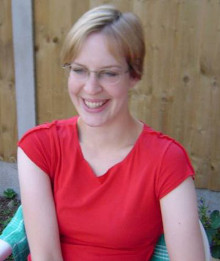In this final post in our symposium on Laust Schouenborg’s International Institutions in World History: Divorcing International Relations Theory from the State and Stage Models, Laust responds to his interlocutors.
You can read the other posts in the symposium here.
It is a rare privilege to be afforded the time to reflect on the characteristics of social relations across history, and moreover to have those ideas published. It is even rarer to have such an outstanding group of scholars respond to those ideas. I am truly humbled and thankful, and my comments should be read in this light. In the spirit of academic debate, I will discuss where I disagree with some of the contributors’ observations, and where they may have misinterpreted parts of my argument. However, to paraphrase Yale, I generally think that there is more that unites us than divides us. I am so happy that they all see the value of the book as an intellectual project, and that most of them agree with the general thrust of my argument, of course with several important qualifications. Let me also extend a special thank you to L.H.M. Ling and Hendrik Spruyt who participated in the 2017 ISA roundtable that inspired the present symposium, but who were nevertheless prevented from contributing to the latter.
It is not possible to respond to all of the contributors’ individual concerns. Therefore, I will attempt to address those that I believe are the most significant and those that are shared by several of the them. This should by no means be read as a diminishing of the force of those arguments passed by. Hopefully I will get an opportunity to respond to those arguments in person or in a different forum.
Probably the most important issue to settle is the status of functionalism in my book. This is because it is the basis for the alternative theoretical framework I propose, and for what we can achieve with it. It is also an issue with a substantial room for misinterpretation, because my functionalism is of a specific kind. While most of the contributors seem sympathetic to my critique of the state and stage models, several are nevertheless concerned about different aspects related to functionalism. Continue reading
 This is the second comment, following Laust’s opening post, by
This is the second comment, following Laust’s opening post, by 
 It all began with Hedley Bull, Barry Buzan and Jack Donnelly. While only the former two are traditionally associated with the English School (ES) of IR, all three had thought about the institutions of international society. Most readers are probably familiar with the five institutions that were discussed in Bull’s landmark contribution The Anarchical Society: international law, diplomacy, war, the balance of power and the great powers.
It all began with Hedley Bull, Barry Buzan and Jack Donnelly. While only the former two are traditionally associated with the English School (ES) of IR, all three had thought about the institutions of international society. Most readers are probably familiar with the five institutions that were discussed in Bull’s landmark contribution The Anarchical Society: international law, diplomacy, war, the balance of power and the great powers.






